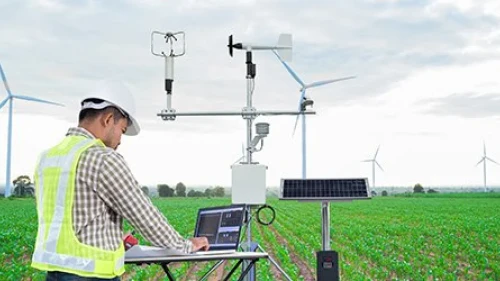Online Experience
What is a Learning Management System?
As you journey through Kent State University’s online Master of Geographic Information Science program, you’ll find your roadmap to success in the innovative Canvas learning management system (LMS). This user-friendly digital platform features intuitive, easy-to-use navigation and structure, and it elevates your online experience with multimedia tools, interactive features and opportunities for real-time feedback.
Making the Most of Online Programs
By navigating Canvas from course to course—and taking full advantage of its many features—you will quickly unlock the vast benefits of our online learning management system, including schedule flexibility, pacing to match your learning style, content on demand, and real-time engagement with faculty and peers. Throughout the online Master of Geographic Information Science program, Canvas will give you direct access to course syllabi and schedules, individual course outlines, weekly assignments, discussion forums, and more. Whether you’re studying at home, on the road or from your favorite coffee shop, everything you need to complete your online graduate degree will be at your fingertips.
The online experience has helped me to create more effective, useful and aesthetically sound maps. I also feel more confident with how to plan out the necessary steps for a mapping project and analysis than before starting.”
Navigate the Course Content With Ease
Each of your courses is structured around its own homepage, where you can find information about your instructor, a course overview, the syllabus and schedule, as well as a link to the weekly modules you’ll work through over the length of the term. Also included on this page is a short video overview of everything you’ll need to access during the course and how to find it.
Exploring Weekly Modules
The number of weekly modules you’ll need to complete will vary from course to course, but the elements within each module will remain essentially the same. When you click into a new module, you will be greeted immediately by the Module Learning Objectives and important assignment due dates, and you’ll also find links to the following:
- Video lectures and transcripts
- Printable presentations
- Required and recommended readings
- Self-check quizzes
- Discussion board prompts
- Individual assignments
Stay Connected to Faculty and Peers
A powerful and effective learning management system like Canvas can help you stay closely connected to those who share your virtual classroom. At Kent State, we understand the value of collaboration and feedback, and we leverage Canvas to facilitate numerous opportunities for this kind of engagement throughout the program:
- Introduce yourself to the class at the beginning of each new course and discover what others are hoping to learn
- Collaborate with your cohort peers in guided discussion forums or strike up more casual conversation in the peer-to-peer forum
- Participate in live check-ins with professors at scheduled times throughout the program
- Engage one-on-one with a private messaging feature that lets you connect directly with others while keeping your contact information secure
Kent State Values Student Input
At the end of each module, students are invited to participate in an anonymous survey about that module’s content, including how much time was required for individual lectures and assignments and which were most useful for helping students learn and apply the module objectives. When students take advantage of this opportunity to share their thoughts and experiences, Kent State is better-equipped to enhance the benefits of online learning and improve student outcomes.
Download Application Checklist
View Courses





